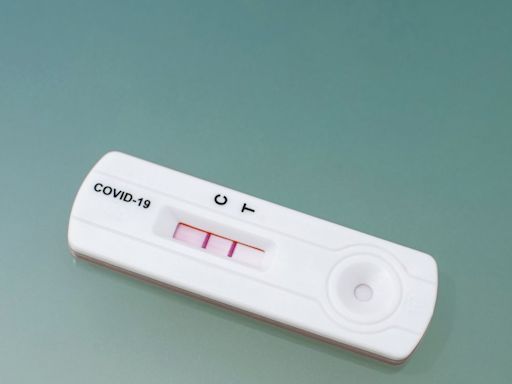Search results
Aug 5, 2021 · August 5, 2021. As the delta variant continues to spread across the country, new data from the Centers for Disease Control and Prevention (CDC) show vaccinated people can still spread COVID-19. Breakthrough infections of the highly contagious delta variant also have been reported. This new information has led to questions surrounding the ...
- Yes, You Can Still Get Covid-19 Even If You’Ve Been Vaccinated
- Symptoms That You Might Experience If You're Vaccinated
- What to Do Next
- Why It's Important to Stay Cautious Right Now
- Sources
If you’ve had both Pfizer or Moderna shots (or one shot of Johnson & Johnson), you’re part of the approximately 51percent of the population that’s been fully vaccinated, according to the latest statistics from the Centers for Disease Control and Prevention (CDC). So, you have nothing to worry about, right? Well, not entirely. The COVID vaccine has ...
If you’re vaccinated but still contract COVID, you can experience any of the same symptoms that an unvaccinated person might develop. While some people do develop more intense symptoms, most people will have a mild case. But what you consider “mild” may be different from what a medical expert calls “mild.” You may still feel pretty awful. For examp...
Chances are, if you start developing symptoms, you’re going to start fretting about what to do next. You might be asking yourself if you should get tested, if you're contagious, and whether or not you need to quarantine. If you have developed symptoms that are compatible with COVID, get tested even if you’ve been vaccinated, says Dr. Parsonnet. For...
From what we know right now, you are still much less likely to get a severe case of COVID-19 that requires hospitalization if you’re vaccinated and become infected. As of August 8, 166.5 million people in the U.S. had been fully vaccinated, according to the Johns Hopkins Coronavirus Resource Center. And only 7525people had been hospitalized or died...
- Good Housekeeping via Yahoo
The COVID "FLiRT" Symptoms You Need to Know About
There are several COVID variants right now which have the same "set of mutations," and are being referred to as FLiRT. Here are symptoms to watch out for.
5 days ago
- Delaware Online | The News Journal via Yahoo
FliRT, a group of COVID-19 variants, accounts for most US cases. How to stay safe
Pregnancy concerns: Mental illness is the leading cause of pregnancy-related deaths. What's being done Should you get vaccinated if you recently had COVID? Those recently infected with COVID ...
6 days ago
Mar 15, 2024 · COVID-19 is caused by infection with a coronavirus named SARS-CoV-2, and flu is caused by infection with influenza viruses. You cannot tell the difference between flu and COVID-19 by symptoms alone because some of the symptoms are the same. Some PCR tests can differentiate between flu and COVID-19 at the same time.
Mar 1, 2024 · Adults over age 65 are also at higher risk for severe infections. Since mild Covid can look like a cold or the flu, it’s important to test yourself if you have symptoms or have had a known ...
Fatigue, muscle pain, headache — if you’re feeling lousy after your most recent COVID-19 vaccine, it could be a sign your immune system is building antibodies to help protect you against future infection. With new COVID-19 vaccines available, the updated shots are expected to better target new variants, according to experts.
Nov 3, 2022 · Key Takeaways. The number of COVID-19 vaccine shots an individual has received could change which symptoms they experience. People who have been vaccinated and previously infected commonly reported sneezing as a symptom, while unvaccinated people were most likely to experience fever. The data comes from nearly 5 million voluntary patient reports.
Advertisement. A 2022 study showed people with mild or asymptomatic COVID-19 were no longer contagious after six to nine days of being diagnosed or developing symptoms. Comparatively, another 2022 ...



